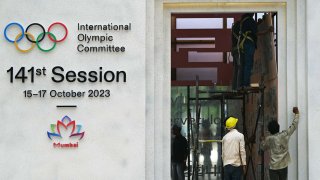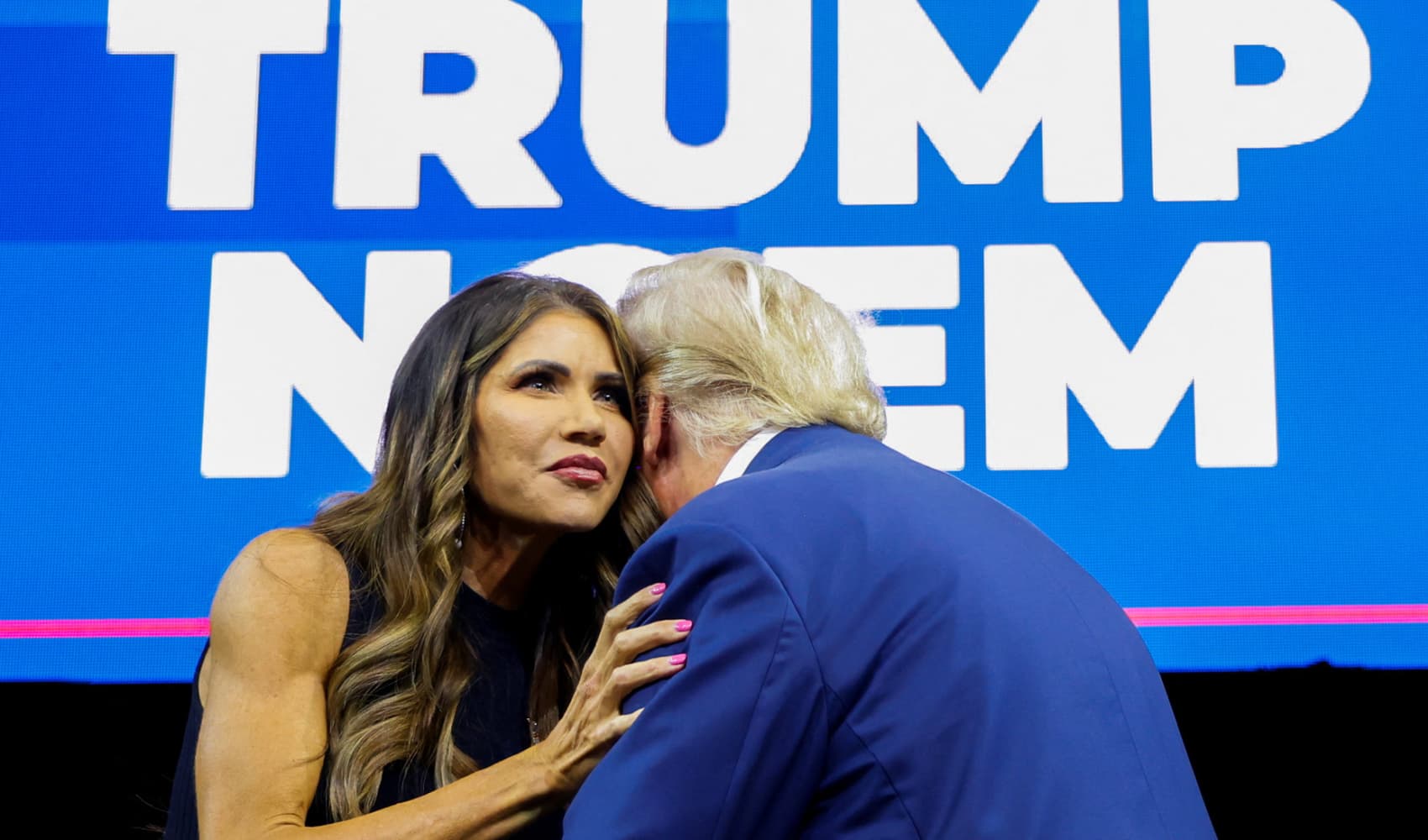
- India has expressed its interest to host the 2036 Olympics, throwing its hat in the ring with Indonesia, Mexico, Turkey and Poland.
- The country points to its successful hosting of the G20 and B20 summits, but hosting a major sporting event could bring back memories of the troubles had plagued its hosting of the 2010 Commonwealth Games.
India has set its sights on hosting the world's grandest sporting spectacle — the Olympics.
This comes hot on the heels of the country organizing two major global events in 2023 — the Group of 20 summit of world leaders and Business 20 meetings of the top global industry titans.
In October, Prime Minister Narendra Modi announced that India plans to host the 2036 Games, reportedly saying it's the country's "age-old dream."
Get Tri-state area news and weather forecasts to your inbox. Sign up for NBC New York newsletters.
Indonesia, Mexico, Turkey and Poland have also expressed their interest to host the Games in 2036.
India is "absolutely ready" to host the Olympics, Nita Mukesh Ambani, founder and chairperson of Reliance Foundation, the philanthropic arm of Reliance Industries, told CNBC's Tanvir Gill in an interview in late October.
Reliance Industries, the country's largest private sector company, entered into a partnership with the Indian Olympic Association (IOA) last year.
Money Report
This partnership "aims to elevate the performances of Indian athletes, support the national sports federations and build the credentials of India as a global sporting nation, with an aspiration to host the Olympic Games in the future."
In an interview with CNBC TV18 in September, International Olympic Committee President Thomas Bach said the committee has had "some dialogue" with the IOA and the Indian government over the bid.
He said the interest from India to host the Games was "great news for the entire Olympic movement," and highlighted that the country is on the cusp of a flourishing sports movement, going beyond more traditional sports and embracing more Olympic sports.
Past sporting events haunt India
While India wants to host the world's biggest sporting event, past debacles cast a shadow on any potential bid.
Back in 2010, India hosted the Commonwealth Games, which were marred by construction delays, missed deadlines for New Delhi to be "Games-ready" and a massive budget overrun.
The Guardian reported at that time the cost estimates for the Commonwealth Games were anywhere between 2 billion pounds and 4 billion pounds, including infrastructure projects. The original budget approved by the Indian government back in April 2007 was 500 million pounds, the publication said.
Separately, the BBC described the run-up to the 2010 Commonwealth Games as "a huge public relations disaster," and said one month before the event that Delhi was "nowhere near ready" — citing craters and potholes on roads and stadiums still under renovation.
In 2011, after the games concluded, the chairman of the of the Commonwealth Games organizing committee, Suresh Kalmadi, was arrested for corruption and financial malpractice.
More recently, the Cricket World Cup this year in India also drew criticism. There were reports that matches involving the host nation saw stadiums fill up quickly, but the turnout for games involving other teams were feeble.
Some fans took to social media to complain about how tickets were reportedly sold out online but footage of the live event showed empty seats. Others complained about glitches during ticket sales while British media highlighted that fans complained of poor transport connectivity and a lack of basic amenities in stadiums.
Given all these, can India deliver for the 2036 Olympics?
David Carter, adjunct professor of sports business at the University of Southern California told CNBC that corruption, cost overruns, and other high profile controversies have become part and parcel of most Olympics.
Prospective host nations, however, must be clear on their objective for organizing the Games, so as to prepare and mitigate the risks associated with these controversies, Carter added.
"Do they seek a return on their economic investment? A return on their objective — such as national branding or rebranding? A mix of both?" he asked. "In many cases, the cost of hosting is but one consideration up against broader national initiatives."
Carter did not comment directly on India's ability to deliver. The IOA did not respond to CNBC's request for comment.
However, he said "the capability to host the Olympics is as much a matter of political will as it is delivering a compelling logistical plan replete with venues driving maximum value for all stakeholders."
He pointed out that while political summits and other global events provide a glimpse into a nation's ability to host, "doing so for the Olympics requires a strong understanding of the wants and needs of broadcasters and sponsors, as well an acceptable level of community buy-in."






